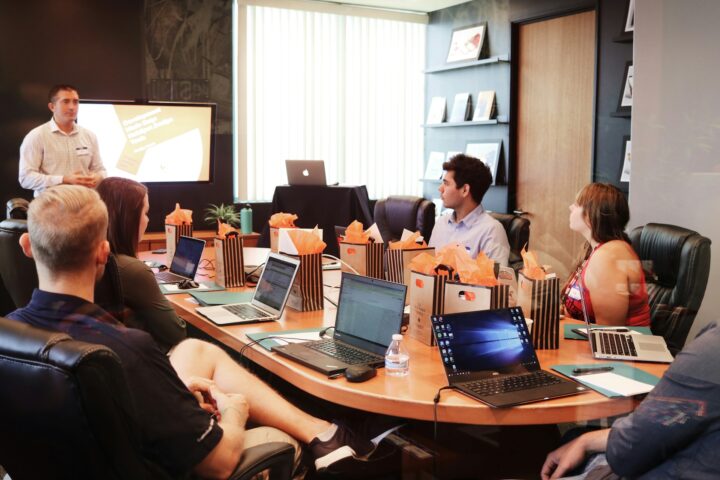For organizations that are serious about improving employee safety, reducing workplace risks and creating better, safer working conditions, there’s ISO 45001.
Structured in a similar way to other ISO management systems, the approach will be familiar to users of standards such as ISO 14001 or ISO 9001. ISO 45001 builds on the success of earlier international standards in this area such as OHSAS 18001, the International Labour Organization’s ILO-OSH Guidelines, various national standards and the ILO’s international labour standards and conventions.
Tip 1: Consultant accreditation levels
There are several organizations that accredit consultancy service providers around the world. Contracting with a consultancy firm without an accreditation might not get you as much credibility with auditors, would be harder for you to prove that you’ve got a qualified contractor on board and would probably be higher cost in the long run. If you’re not sure about ISO 45001 and how the standard can help you achieve your safety management goals, the organization or consultant you’re contacting will be happy to help you decide whether the ISO 45001 approach is right for you.
Tip 2: Consultant and auditor competence
ISO 45001 requires that all personnel concerned in the management of the safety management system (SMS) have the knowledge, skills, and experience required to perform their assigned tasks. Consultants with the right qualifications will be able to meet the ISO 45001 requirements.
Tip 3: Consultant have proven experience in supporting ISO 45001
There are two main stages in implementing ISO 45001. The first is to develop and implement an SMS, as required by the standard. The second is to demonstrate the effectiveness of the SMS to an auditor. Even if you want to go straight to demonstrating effectiveness, you’ll still need to define and implement the SMS. If you’re contracting a consultant for help with ISO 45001 in any form, there are four main areas it’s vital to check they have the experience to cover. You could ask to see one or more of the following:
- Proof of previous ISO 45001 implementation experience
- Key personnel with relevant ISO 45001 ISO certificates and accreditations
- Experience in accreditation development and application
- Experience in ISO development and application
Tip 4: Consultant and organizational culture fit
To be successful with ISO 45001, you’ll need to have a strong, positive culture of safety.
Safety is not a competitive issue, but your culture has to be at a certain level for everybody to feel reasonably safe.
Tip 5: Consultant dissemination of information
Chances are that your consultancy contract will be to do more than just deliver your ISO 45001 documentation. For example, it may be to deliver safety awareness sessions, to administer your risk assessments or conduct internal and external audits. Unless your consultant can provide you with this added value, you’re probably better off looking for another more competent firm.
Tip 6: Consultant that acts a leader
While consultants are the front line in safety management system (SMS) implementation, they’re not management. Consultants will implement the ISO 45001, but it’s your organization that ultimately has to manage the safety of the people working in your facility.
Without leadership, consulting will be hollow. You need management engagement and buy-in in order to change the culture of the organization from indifference towards safety to buy-in and compliance. A competent consultant will act as a leader to set the direction and provide the impetus for that change.
Tip 7: Consultant experience with other standards
Regulators will increasingly be looking to ISO standards to achieve better working conditions, lower risks and improved safety than was previously possible with less comprehensive standards. As ISO standards become more ubiquitous in the regulator’s toolkit, consultants will need to have experience with other standards too. Otherwise, they may not get a lot of repeat business.
Thankfully, the processes involved in implementing ISO 45001 do not vary a great deal from the processes involved in OHSAS 18001. If your consultant has helped you with the implementation or auditing of OHSAS 18001, they’re well on the way to being able to do the same for an ISO 45001 implementation.
Tip 8: Consultant ability to take on complex programs
The ISO 45001 manages the overall safety management processes of an organization. This typically includes evaluating the risks faced by workers, designing safety programmes and implementing them. This scope is vast, and a single consultant or consulting team will struggle if given an impossibly complex program.
A generalist will have the tools to deliver the ISO in theory, but may not have the specific ISO 45001 implementation experience to deal with unique or difficult to solve problems, such as the very low-risk/high-cost problem mentioned earlier. You’ll need to find somebody with knowledge of your business, preferably with some experience of your unique circumstances.
Tip 9: Consultant willingness to help
This tip is simple: a willingness to help you improve employee safety habits. They know how difficult it is to transition to a new way of living with its challenges, doubts and insecurities. Your consultant should have a passion for safety and a desire to help you achieve your goals. Answer honest questions such as “What’s in it for them?” and you’re likely to get an honest and meaningful answer.
Tip 10: Consultant selection and engagement
Don’t be afraid to ask questions. If you’re not sure about ISO 45001 it’s natural to be apprehensive about what your consultant means by ISO 45001. Be specific about the terminology you’re using and get a clear understanding of what you can expect in terms of approach and consultancy services.
Be clear about your industry – whether it’s manufacturing, construction, retail or services, etc. If you’re doing business in a new country, make sure your consultant understands the nuances of its culture and business practices. If you’re part of a large or complex organization, be as specific as possible about your authority and decision-making power.
















